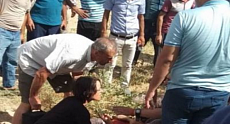Former head of the National Bank of the Kyrgyz Republic called Kyrgyz som the most stable currency in the EEU
Almaty. January 19. Silkroadnews - According to the deputy of parliament, former head of the National Bank of the Kyrgyz Republic Marat Sultanov, the Kyrgyz Som was the most stable currency in the territory of the Eurasian Economic Union (EEU), reports KyrTAG.
He argued that Kyrgyzstan does not have such a large corporate debt, such as Russia, which annually pays $100-150 billion in the last 3-5 years. This creates additional pressure on the exchange rate.
"In addition, the Russian and Kazakh economy heavily oriented towards raw materials, while the economy of Kyrgyzstan is not only focused on one sector. We have developed all sectors gradually: trade, services, exports, agriculture, light industry. That is, we have a more diversified production",- continued M. Sultanov.
The third reason for the stability of som parliamentarian called the lack of large debts in the financial system of Kyrgyzstan in comparison with Russia.
"Because of the sanctions imposed by Western countries an opportunity to attract foreign funds is now closed, Russian banks can not refinance their obligations. They have problems with resources, respectively, to raise interest rates, there is pressure on the exchange rate",- continued the former head of the National Bank.
Meanwhile, in his opinion, great difficulties await the Kyrgyz Som ahead, as Kyrgyzstan has a negative balance of payments, and it gets worse every year. This implies pressure on the exchange rate. To prevent problems M. Sultanov proposed to increase exports by reducing import operations.
"As for the actions of the National Bank, the systematic attempt to restrain the growth of the dollar interventions is unrealistic. Interventions can smooth out some fluctuations caused panic and rumors. At these moments, the National Bank must show that it has the power, the power to put in place and inflict losses instead of profits", - concluded the MP.


